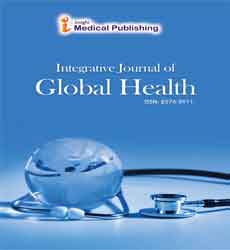ISSN : 2576-3911
Integrative Journal of Global Health
Stigmatization towards cancer among university students in Malaysia
Introduction: In the height of the COVID-19 pandemic in 2020, the Ministry of Health in Kenya putting in place stringent COVID-19 guidelines to curb the spread of this disease including lockdowns and restrictions to public gatherings disrupting the normal communications, activities and engagements that the young people usually had prior to the pandemic. The COVID-19 crisis also led to an economic downturn further negatively affecting young people. This purpose of this study was to therefore analyze the effect of COVID-19 crisis on mental health among young people between the ages of 18-35 years in Kenya. Methods: Cross-sectional research was carried out in Nairobi Kenya where youth aged 18 to 35 years responded to an online survey. A total of 272 participants completed the questionnaire which included a biodata section and a section aimed at measuring depression using the standardized self-reporting Depression Analysis Tool- PHQ9 and measure resilience using the standardized The Brief Resilience Scale (BRS) and Brief Resilient Coping Scale (BRCS). Conclusions and recommendations: The study demonstrated a strong correlation between the aftermath of the COVID-19 crisis and its effect on mental health of young people. Therefore, the study recommends the development, strengthening and implementation of a mental health preparedness and response strategy for future pandemics and crisis situations.
Abstract
Introduction: In the height of the COVID-19 pandemic in 2020, the Ministry of Health in Kenya putting in place stringent COVID-19 guidelines to curb the spread of this disease including lockdowns and restrictions to public gatherings disrupting the normal communications, activities and engagements that the young people usually had prior to the pandemic. The COVID-19 crisis also led to an economic downturn further negatively affecting young people. This purpose of this study was to therefore analyze the effect of COVID-19 crisis on mental health among young people between the ages of 18-35 years in Kenya. Methods: Cross-sectional research was carried out in Nairobi Kenya where youth aged 18 to 35 years responded to an online survey. A total of 272 participants completed the questionnaire which included a biodata section and a section aimed at measuring depression using the standardized self-reporting Depression Analysis Tool- PHQ9 and measure resilience using the standardized The Brief Resilience Scale (BRS) and Brief Resilient Coping Scale (BRCS). Conclusions and recommendations: The study demonstrated a strong correlation between the aftermath of the COVID-19 crisis and its effect on mental health of young people. Therefore, the study recommends the development, strengthening and implementation of a mental health preparedness and response strategy for future pandemics and crisis situations.
Open Access Journals
- Aquaculture & Veterinary Science
- Chemistry & Chemical Sciences
- Clinical Sciences
- Engineering
- General Science
- Genetics & Molecular Biology
- Health Care & Nursing
- Immunology & Microbiology
- Materials Science
- Mathematics & Physics
- Medical Sciences
- Neurology & Psychiatry
- Oncology & Cancer Science
- Pharmaceutical Sciences
